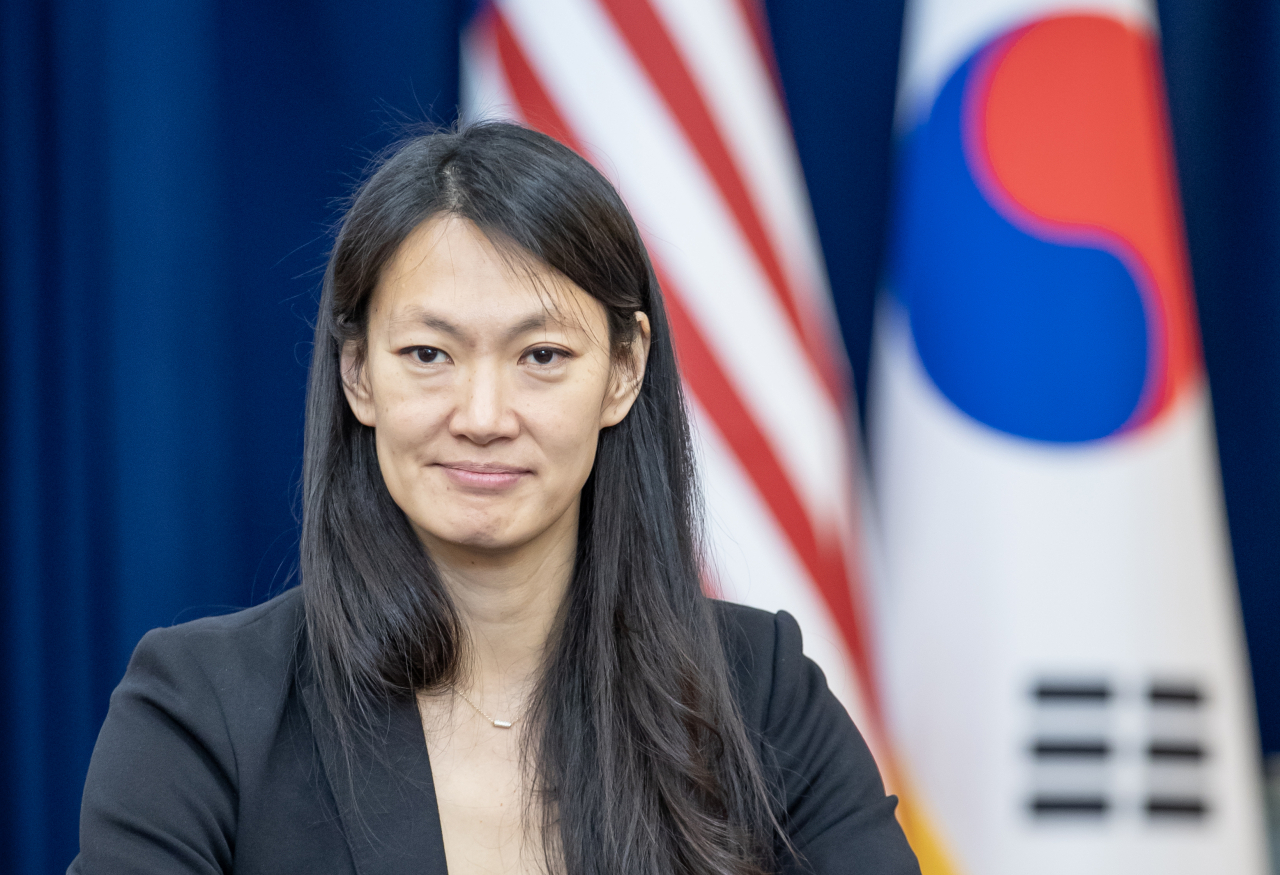 |
Julie Turner, the new US special envoy for North Korean human rights issues (Pool photo-Yonhap) |
WASHINGTON -- The new US envoy for North Korean human rights issues reiterated “grave” concerns Friday over China’s reported repatriation of North Korean defectors last week, as she stressed the international principle of non-refoulement should be upheld.
Ambassador Julie Turner, who took office a week ago, made the remarks in a forum, referring to reports that Chinese authorities repatriated around 600 North Korean escapees, who were detained in the bordering Chinese provinces of Jilin and Liaoning, on Oct. 9.
“I am gravely concerned by recent and credible reports that the PRC repatriated large numbers of North Koreans, including as recently as last week,” she said in the forum hosted by the Institute for Korean Studies at the George Washington University. PRC stands for China’s official name, the People’s Republic of China.
“The State Department regularly raises such cases with the PRC and will continue to do so in the future, including in coordination with our partners,” she added, underscoring the travails of North Korean escapees who she said overcame “unimaginable odds” in search of freedom.
Asked to share her conversations with Chinese officials over the issue, the envoy refused to comment, citing diplomatic protocol.
“The US government has a long history of raising this issue with the PRC government,” she said. “We have, of course, raised the most recent cases, including last week.”
Her attendance at the forum came just after she visited Seoul this week. She met with South Korean officials, civic activists and others to discuss human rights in the North, which she described as being among the “most protracted crises” in the world.
“The COVID-19 pandemic has allowed (North Korean leader) Kim Jong-un to further tighten his control over all aspects of life in the isolated country,” she said.
“Although the DPRK borders are slowly reopening, we can expect many of the measures instituted under COVID to remain, such as restrictions on unofficial trade, the new border walls and repressive laws,” she said. DPRK stands for the North’s official name, the Democratic People’s Republic of Korea.
Turner, in particular, expressed concerns over the North’s “anti-reactionary thought law” that she said limits North Koreans’ access to information and ability to communicate with the outside world.
She underlined the need to craft “new” strategies fo getting information into the North Korean community.
“It is also important to look at the type of information that resonates most strongly with North Koreans, such as stories of North Koreans who have successfully created lives for themselves after escaping,” she said.
One of her primary goals as special envoy is to help make more defector testimonies available in the US, she said.
“That means looking for opportunities to speak alongside many of the refugees, escapees and defectors that are here in the US,” she added.
Asked about methods to deliver information to the North, she said that the US is looking to invest in technologies that could include satellite distribution.
“But I also want to emphasize that we see a lot of value in continuing the old-school techniques that have been used for decades that have been tried and true, and that includes the radio broadcasting,” she said.
North Korea appeared to have been unnerved as a spokesperson for its Korea Association for Human Rights Studies went into a tirade over her activities in Seoul this week.
“Her political acts full of malice and plots go to clearly prove that the US human rights policy is nothing but the false propaganda full of hostile prejudice and mud-slinging and its source is rooted in the US hostile policy towards the DPRK,” the official said in an English-language statement carried by the Korean Central News Agency.
Turner’s swearing-in last Friday ended more than six years of vacancy in the post. The last special envoy was Robert R. King, who left the position in January 2017. (Yonhap)







![[Today’s K-pop] Blackpink’s Jennie, Lisa invited to Coachella as solo acts](http://res.heraldm.com/phpwas/restmb_idxmake.php?idx=644&simg=/content/image/2024/11/21/20241121050099_0.jpg)